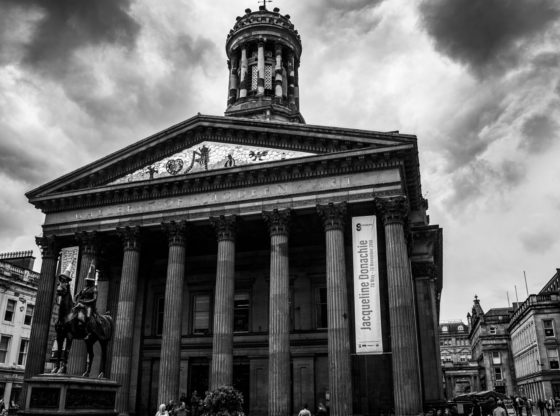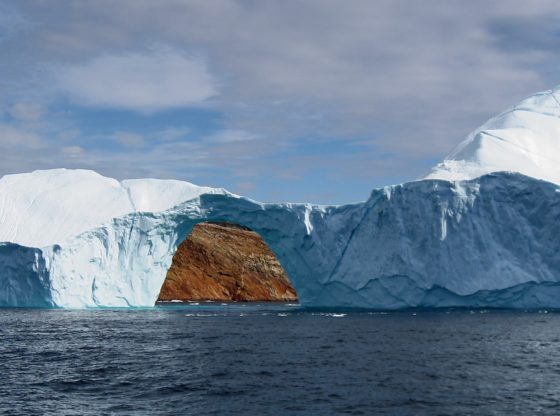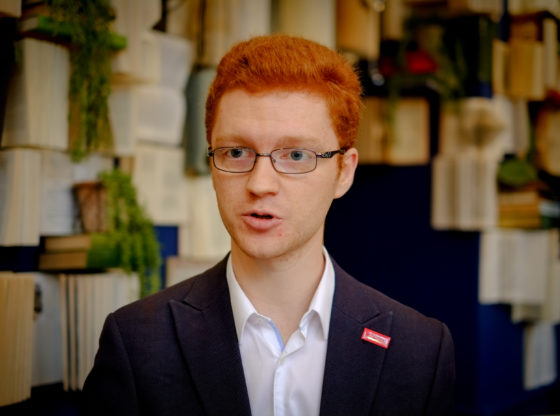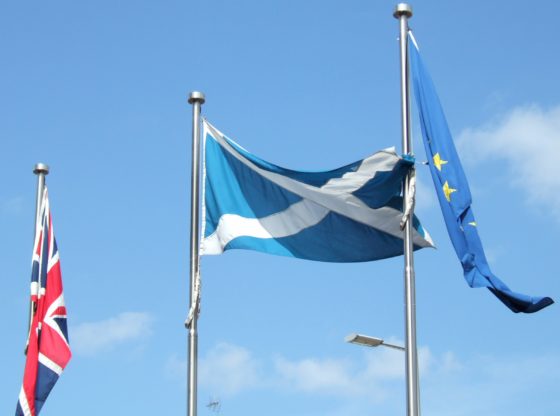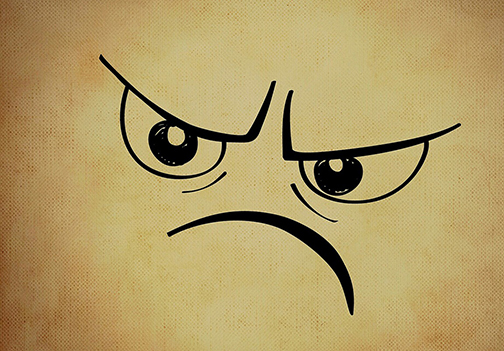The German elections in September saw Angela Merkel win a fourth term as German Chancellor. However, her victory was somewhat overshadowed by the shifting political terrain in Germany. Writing from Berlin, Rachel Loxton reflects upon the mood of the election and casts an eye across the issues facing German politics.
As Chancellor and leader of Germany’s biggest political party, the Christian Democratic Union (CDU), Angela Merkel is used to being in the limelight. However, since the country’s new supersize parliament gathered for the first time in October following the previous month’s election, there have been different talking points. All eyes were on the 92 members representing the populist Alternative for Germany (AfD), the first far-right party to secure enough votes to enter the Bundestag in almost six decades.
The anti-immigration, anti-Islam AfD, which was founded as a Euro-sceptic party on the back of the debt crisis in 2013, became the third largest party in the Bundestag after winning 12.6 percent of the vote. Despite a relatively low-key election campaign from all sides, which led voters to brand TV debates between Merkel and Social Democratic Party (SPD) leader Martin Schulz as langweilig - boring - the election result marks a significant shift in German politics. There’s now a record 709 lawmakers in the Bundestag, making it the largest parliament in the western world.
There’s now a record 709 lawmakers in the Bundestag, making it the largest parliament in the western world.
The previous grand coalition between the Christian Democrats and SPD is out. Now, talks are ongoing between the CDU, its Bavarian sister party the Christian Social Union (CSU), and expected coalition partners the Free Democrats (FDP) and the Greens. The result is likely to be a Jamaica coalition, so called because the colours of the three parties match the national flag of the Caribbean state. But what led to this new divisive Bundestag, and where does Germany go from here?
A RESURGENT AfD?
Although Merkel - nicknamed ‘Mutti’ (mum) - because of her calm and composed demeanour, won a fourth term as Chancellor, her party suffered its biggest losses since 1949. The journalist Jochen Bittner, a political editor who writes for the German national newspaper Die Zeit and the New York Times, said voters sent a message following Merkel’s handling of the refugee crisis. Merkel led the controversial decision to open the country’s borders in 2015, resulting in around a million refugees entering Germany.
Bittner said: “My estimate would be that not so many people voted for AfD out of conviction but because they wished for a stricter immigration policy. While Merkel is still regarded as a very experienced, very reliable, sober politician – the kind of leader Germans wish for – there was also a huge disappointment about the way she managed the refugee crisis.
“I don’t think that the bulk of AfD voters are racists or staunch nationalists but rather people who feel the need to show that their idea of conservatism is no longer in line with the government policies and that they have no other choice but to vote for a radical right wing party.”
Bittner also expressed disappointment with the way Merkel handled the election results, feeling that she didn’t react sufficiently strongly to their significance. He went on: “I think she was quite content with the results for the AfD because it could have been worse. She basically said: ‘We will go ahead as usual.’ This I found almost shocking because how can she not see that the conservative camp had suffered the biggest losses in post-war Germany?”
Bittner believes Merkel also lost support in Germany because of her dedication to events on the international stage, whilst performing relatively poorly on the domestic front: “Functionally, she served as the Prime Minister of Europe in the past 10 years. Although she knows the state of Germany and the fears of the people very well, she wasn’t really regarded as a manager of internal German problems. Merkel is a very bad communicator.”
The Dresden-based political scientist, Werner Patzelt, agrees with much of Bittner’s thesis, specifically that the AfD filled a gap for voters who felt alienated. He said: “During the last four years a gap had emerged at the right wing of the political spectrum, and now, by the arrival of the AfD into this Bundestag, this gap of representation is closed.”
“Although she knows the state of Germany and the fears of the people very well, she wasn’t really regarded as a manager of internal German problems. Merkel is a very bad communicator.”
For Patzelt, how the AfD behaves will determine whether the party can thrive over the coming months and years. The party has a reputation for controversy; from member Bjorn Höcke calling for a ‘180-degree turn’ in Germany’s culture of remembering and atoning for the Nazi era, to an election campaign which featured posters of bikini-clad women with the line: ‘Burkas? We prefer bikinis.’ Following the election, hundreds of protestors gathered in Berlin to oppose the AfD, and demonstrations in the capital have continued since then.
Meanwhile, infighting continues within the AfD. Just hours after the September 24 vote, one of the party’s co-leaders, Frauke Petry, made a dramatic exit at a press conference, saying she would not sit with the party in the Bundestag. Patzelt summarises the situation thus: “Some in the AfD want the party to become quite a normal German political party, while another part of the AfD wants to transform this into a political movement gathering all those who sympathise with the right fringe of the political spectrum. So far, it’s quite unclear who will prevail.
“A clearly rightist AfD presumably won’t have a big future in Germany but an AfD in the tradition of the old classic CDU would have a future in Germany. And it’s an open question – we have to wait for months to see the development.”
The AfD’s future popularity will depend in no small part on how the new government addresses some of the nation’s most emotive issues, including German national identity and immigration.
LINGERING DIVISIONS
The September election also served to expose the division that still exists between east and west, long after the fall of the Berlin Wall and the reunification of Germany. The AfD’s support was strongest in the states that made up the former communist east Germany.
“If you look at maps of Germany on average income, on productivity of business enterprises, on election results: you always see the shape of the old German Democratic Republic,” said Patzelt.
“Many in east Germany resent the west German political system, as well as the economic system and societal system, which they feel to have been imposed on them with detrimental side effects. Here it’s a big potential for outrageous reactions against the west German dominated political class. East Germans tick differently than west Germans. Patriotism is much more important, migration is seen as a danger rather than an advantage.”
According to Patzelt, Merkel has a “great responsibility” for the rise of the AfD and for right wing populism more widely. Whilst she is not responsible for the differences in mentality between east and west Germans, he observes: “Her tragedy is that she pursued policies which outraged, in particular, east Germans.”
THE EUROPEAN STAGE
With Brexit on the horizon, as well as a variety of other issues throughout the continent, Europe is facing pressure and change. However, experts say the new German government will continue to play a key role. Bernd Hüttemann, vice president of the European Movement and Secretary General of its German council, which specialises in European affairs, said the new coalition would certainly be pro-EU but that there are various obstacles looking ahead.
He said: “There’s two points that people might think is tricky – the refugee policy and the second one is the bailout policy in the Eurozone. But the government will most probably find an agreement and will not fall apart because of this.”
Hüttemann doesn’t think that the rise of right wing populism in Germany will have any bearing on the future of the EU: “In Germany we can somehow live with this (the AfD in the Bundestag) because 87 percent of the parliament are clearly in favour of Europe. Even AfD doesn’t say we need to go out of Europe. They say we need a referendum to go out. Although it’s quite clear that the CDU/CSU lost a lot of votes to eurosceptic AfD but they also lost a lot to the pro European liberals.”
“The UK government doesn’t know what it’s doing…I don’t know anyone who’s not astonished by what’s happened.”
Hüttemann, who said he’s “quite optimistic” about the long-term future of Europe, went on to the subject of Brexit, saying that most Germans could not grasp why the UK had voted to leave the EU: “The UK government doesn’t know what it’s doing,” he said. “I don’t know anyone who’s not astonished by what’s happened.
“They’ve completely lost their minds. The problem with the Westminster style is not the great parliamentary tradition where you can make a lot of positive noise, or even productive theatre. But in the past decades the combination of a democratic debating with a too powerful one-sided media lead to a sort of ‘mediacracy’ where people increasingly vote for those who just make the most noise. But trouble makers seldom tell people the truth.”
He added: “The Westminster way of this House of Cards style politics is now coming to an end. The substance is not there anymore. What will come out is a more united Europe of 27 members.
“At the end of the day, the UK might be somehow stay in the EU’s legal system without taking part in the decision-making process anymore. From an UK point of view, this is even worse.”
With once-in-a-lifetime changes on her doorstep, rising populism, as well as volatile situations internationally, it’s clear the Chancellor of Germany will have her work cut out. But for some commentators, Merkel’s political fortunes have actually been tied to some of the political challenges we now face. “I don’t think she would have stayed if it wasn’t for Brexit and Trump in the US,” says Bittner. “If those two things hadn’t happened, I think she could have imagined a different career.”
This may be so. But the fact is that Merkel remains Chancellor and she will have to work hard to steer Germany through more restive domestic and international waters in the coming years.
Rachel Loxton is an award-winning freelance journalist and an English teacher. She lives in Berlin. Find her on Twitter at: @RachLoxton
Feature image: Angela Merkel during CDU Wahlkampf Heidelberg at Universitätsplatz Heidelberg, Heidelberg, Germany. September 5 2017. Image: Sven Mandel [CC BY-SA 4.0]


